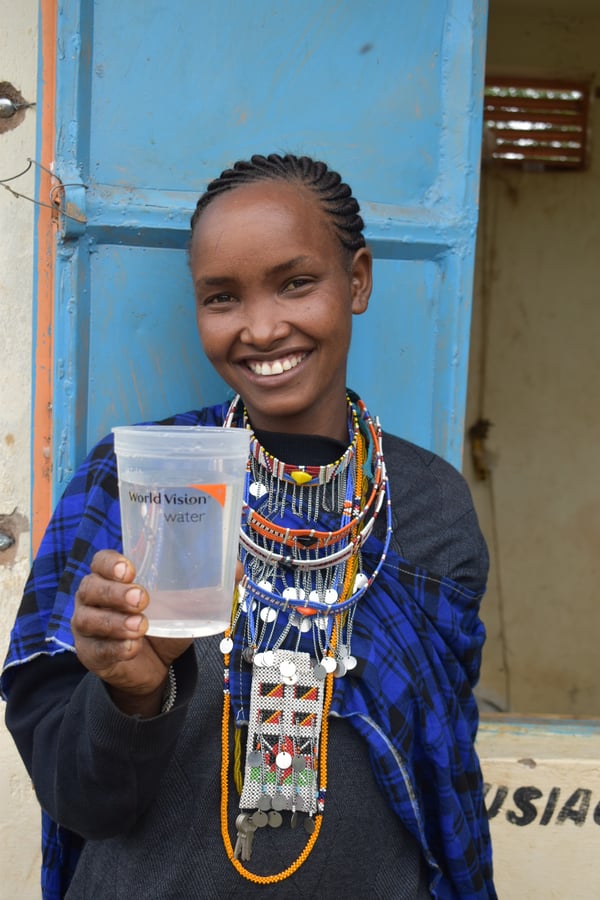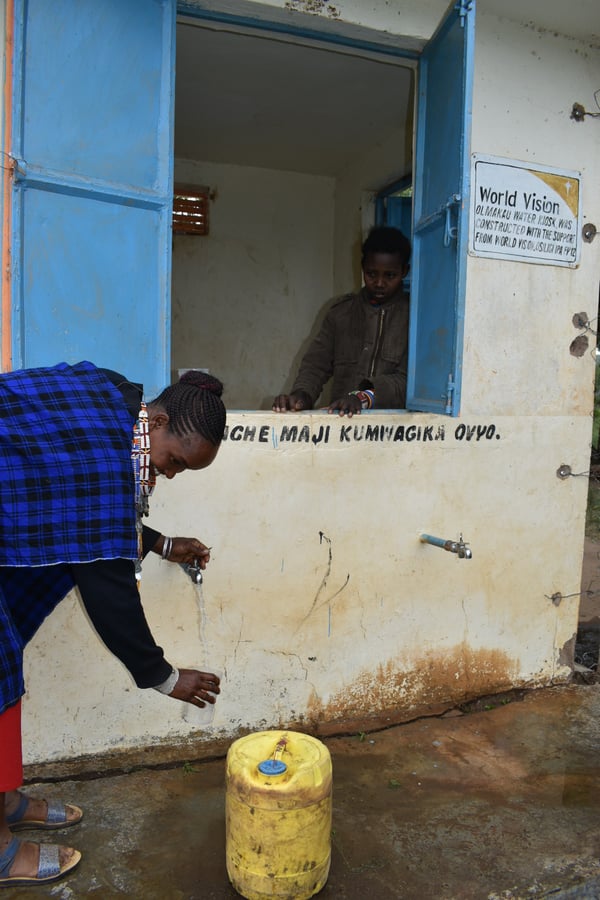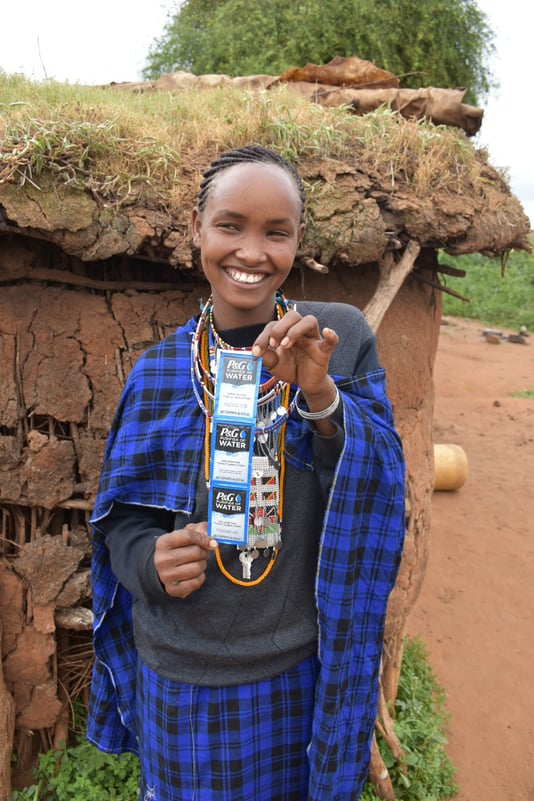KEEPING CLEAN WATER FLOWING TAKES EFFORT: SOMETIMES A LOT
 There’s nothing like seeing a community get clean water for the very first time, but it’s equally rewarding to see the progress, year after year, as clean water transforms a community. That’s one of the reasons that I recently visited the community of Naomi Nalokai for the third time in six years. During my first visit, we captured Naomi’s story on video to share how she used to walk seven hours to collect filthy water from an open well and how a new solar powered water system had turned that walk into only minutes. I then saw her again a few years later and learned how her family was healthier and how she felt that she was a better mother now that she had more time to spend with her children. There’s nothing like seeing a community get clean water for the very first time, but it’s equally rewarding to see the progress, year after year, as clean water transforms a community. That’s one of the reasons that I recently visited the community of Naomi Nalokai for the third time in six years. During my first visit, we captured Naomi’s story on video to share how she used to walk seven hours to collect filthy water from an open well and how a new solar powered water system had turned that walk into only minutes. I then saw her again a few years later and learned how her family was healthier and how she felt that she was a better mother now that she had more time to spend with her children.
Here’s my report:
I’m not sure what I’ll learn during this visit, but I’m eager to see Naomi again. I’m greeted warmly by this strong Maasai woman whose story has moved so many people. She’s grateful to World Vision. We’ve made great progress in providing clean water to not only Naomi but the surrounding communities. Only about 10% of people here had basic water access when we began our work in 2006 and now about half of the people have a clean water source near their homes. We’re also bringing clean water into the schools and health care facilities. This was welcoming news to Naomi since she had to bring water to the nearby health clinic for the birth of her two year old Christine. She tells me that she’s pregnant now and is grateful that her next delivery will be a more pleasant experience.
After spending time catching-up with Naomi and her husband, we visit her old water source. It’s covered with blue green algae and Naomi complains that the monkey’s poop in it. We then visit the water source provided seven years ago by World Vision. It’s up and running but was recently been damaged by an elephant who tore down the fence and broke the water pipe. Talk about a water hazard!
 The water committee quickly managed the repairs caused by the elephant using the fees that they collect for use of the water. They explained how life was different before the water point. They were nomadic and migrated seasonally into Tanzania for water for their livestock as the local water source didn’t provide enough water during the dry season. Now they can stay in one place, children can go to school instead of migrating with the cattle, people are cleaner and don’t smell, and life is easier. They also have more income because the livestock is healthier and their cows produce more milk. The water committee quickly managed the repairs caused by the elephant using the fees that they collect for use of the water. They explained how life was different before the water point. They were nomadic and migrated seasonally into Tanzania for water for their livestock as the local water source didn’t provide enough water during the dry season. Now they can stay in one place, children can go to school instead of migrating with the cattle, people are cleaner and don’t smell, and life is easier. They also have more income because the livestock is healthier and their cows produce more milk.
The water committee didn’t initially charge for use of water by animals but the community agreed it’s the right thing to do and that’s allowed for quick repairs on the four occasions that the water point has broken down. The water system now supports 5,000 people with multiple collection points. The water committee told me that because of the fee collection system they have excess money and so they’ve used some of the money to build a new classroom at the school and they’ve funded 10 boys and 12 girls from the poorest families to go to secondary school.
 I asked what the community did for water when the water point was broken. They tell me that they went back to fetching water from the old water point. Remembering that Naomi complained about the monkeys, I ask her if she treated the water from the well. She surprises me by telling me that she used the P&G water purification packets. She only uses the packets when the water kiosk isn’t working. World Vision uses these amazing packets as a bridge before communities have a permanent water source, and, also for situations like this, when the water source is damaged. I asked what the community did for water when the water point was broken. They tell me that they went back to fetching water from the old water point. Remembering that Naomi complained about the monkeys, I ask her if she treated the water from the well. She surprises me by telling me that she used the P&G water purification packets. She only uses the packets when the water kiosk isn’t working. World Vision uses these amazing packets as a bridge before communities have a permanent water source, and, also for situations like this, when the water source is damaged.
Another new challenge is that the regular testing of water quality by World Vision showed an unhealthy level of fluoride in the water. So, World Vision installed a membrane system to remove the fluoride.
As I prepare to leave, the community asks me to please visit again and Naomi tells me that I’m always welcome. I’m grateful for this visit to renew friendships and to show, how sometimes, it can be quite complex to provide clean water that lasts in a community. Despite challenges of a rampaging elephant, monkey poop, and fluoride contamination, this community, in partnership with World Vision, has done what is needed to make sure that clean water keeps flowing.
|